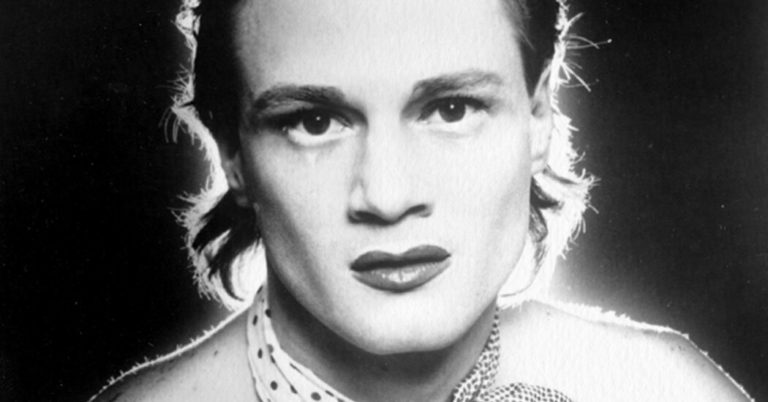

Before the album was released, Brandt mounted a heavy promotional campaign, including full-page advertisements in Rolling Stone and Vogue, posters on the sides of buses and a gigantic billboard in Times Square depicting Jobriath as a nude statue. Coinciding with the album’s release, Jobriath had planned to make his live performance debut with three shows at the Paris Opera House, where he would emerge in a King Kong costume climbing a mini replica of the Empire State Building. The production cost was estimated at an exorbitant $200,000.
The ad campaign is one reason Jobriath is considered to this day to have been among the music industry’s most overhyped acts.
With the gay liberation movement growing in the early 1970s, Brandt assumed that Jobriath would be readily embraced. “The kids will emulate Jobriath,” he told Rolling Stone in 1973, “because he cares about his body, his mind, his responsibility to the public as a leader, as a force, as a manipulator of beauty and art.”
The album earned some positive reviews, including one from Rolling Stone, which said it “exhibits honest, personal magnetism and talent to burn.” Other publications were more mixed. In his review for The New York Times, Henry Edwards made the inevitable comparison to Bowie. “Jobriath, too, writes about ‘space clowns,’ ‘earthlings’ and ‘morning starships,’” he wrote. “The results can only be described as dismal.”
Sales of the album were poor, and the Paris Opera House shows were scrapped.
“When it started out,” said Cross, Jobriath’s guitarist, “it was all about the music. After Jerry Brandt got involved, it was all about the career. Then after that started to take hold, it was all about Jobriath’s sexuality. America was not ready for that.”
Jobriath put out a second album, “Creatures of the Street,” in 1974 and embarked on a national tour, only to encounter homophobic slurs during a performance at Nassau Coliseum on Long Island. By the next year, even after his appearance on “The Midnight Special,” Elektra had dropped Jobriath from its roster, and he and Brandt had parted ways.
“He didn’t sell any records,” Brandt said in “Jobriath A.D.,” the documentary film. “What gets a record company going is the smell of money. And there was no money. He didn’t generate 50 cents.”